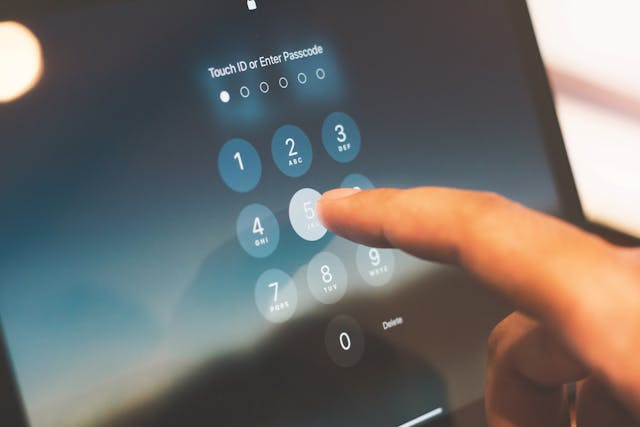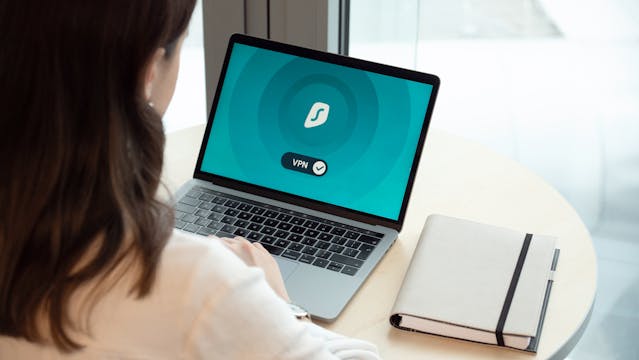World Password Day: Busting Myths about Password Security
Celebrate World Password Day by debunking common password myths and learning how to improve your online security. From understanding the importance of balancing password length and complexity to the value of password managers, this blog provides practical advice to help you protect your digital life.
Written by human for humans
Today, as we observe World Password Day, it’s the perfect moment to tackle some persistent myths about password security. In today’s digital age, cybersecurity isn't just for tech enthusiasts—it's something everyone should prioritise. That’s why World Password Day, celebrated on the first Thursday of May every year, is the perfect time to boost your online security.
From debunking common misconceptions to offering practical advice, this blog will guide you through the important topics on cybersecurity, separate fact from fiction and level up your online safety.
Ready to challenge some misconceptions? Let’s dive in!
Myth #1: "Long Passwords Are Always Enough"
The Myth: "As long as my password is super long, it's unbreakable."

We've all heard it before: "If I just make my password longer, no one will ever crack it!" Sure, it sounds like a solid plan — but unfortunately, length alone doesn’t always do the trick.
The Reality:
While it’s true that the length of a password is important, password complexity plays a much bigger role in keeping your accounts safe. A password that’s just a string of 20 lowercase letters might look impressive, but it’s much easier for attackers to crack than you might think.
A 20-character password made up entirely of lowercase letters is pretty much like writing your name on a sticky note and sticking it to your monitor. It’s a decent start, but not nearly enough to keep cybercriminals at bay.
So, what's the way to go? Aim for a balance of both length and complexity. Your password should ideally include a combination of uppercase and lowercase letters, numbers, and symbols. The more varied it is, the harder it is to guess! Read more on strong passwords and how to remember them.
Brute force attacks and dictionary attacks are real threats. Read more in our blog post on How to Defend Against Sophisticated Password Attacks.
Myth #2: "I'm Not Important Enough to Be Hacked"
The Myth: "Hackers only target big companies and celebrities."

It’s easy to think that hackers only go after high-profile targets like Fortune 500 companies or A-list celebrities. After all, they are the ones making headlines when their data gets compromised, right? But here’s the harsh truth: hackers aren’t just after the rich and famous — they’re after anyone they can exploit, including you.
The Reality:
Hackers often target individuals like you and me, not necessarily for huge payouts, but for smaller, more subtle gains. For example, your email address and online accounts hold a lot of value, even if you don’t think so. They can be used to steal sensitive information, carry out fraud, or even sell on the dark web.
And let’s not forget about botnets — a network of infected computers that hackers use to launch large-scale attacks, often without the owner ever knowing. Your computer could be silently running malicious software in the background, making it part of a botnet that’s used to attack bigger targets, like a corporation or government website. The scariest part? It’s happening without your knowledge.
Koofr - a safe place for your files.
Everyone is a target. Whether it’s for personal gain, identity theft, or using your device in a larger cyberattack, your online presence holds value. So don’t assume you’re safe just because you’re not a celebrity — in the eyes of hackers, everyone is a potential opportunity. Protect yourself. Strong passwords, two-factor authentication, and being cautious of suspicious emails or links are all simple steps that can make a huge difference.
Turn on Two-Factor Authentication for all your online accounts.
Myth #3: "Changing My Password Frequently Is the Best Security"
The Myth: "Changing your password every month keeps you safe."

It sounds like good advice, right? Change your password regularly, and you’re guaranteed to stay secure. Well, not so fast. While it’s true that changing passwords can help protect your accounts, the frequency with which you change them isn’t always the key to improved security.
The Reality:
When forced to change passwords too often, people tend to make their passwords weaker, simpler, and more predictable. If you’re scrambling every month to come up with a new password, you might be resorting to variations like "Password1!" one month, "Password2!" the next, and so on. Enter password managers: these tools allow you to store and generate strong, unique passwords without the hassle of remembering them all. With a password manager, you can focus on making each password strong and unique, and never have to worry about using "Password123!" just to keep up with the next change.
Instead of obsessing over frequent password changes, focus on creating strong, unique passwords for each of your accounts, and enable Multi-Factor Authentication (MFA). MFA adds an extra layer of security, making it much harder for hackers to break in. Only change your password when there’s a suspected breach or you’re prompted by a service. Regular changes don’t automatically mean better security, but good habits like using a password manager and MFA do.
Read How Two-Factor Authentication Improves Your Online Security
Myth #4: "My Password Manager Is Too Complicated"
The Myth: "Password managers are only for tech experts."

If you’ve ever looked at a password manager and thought, "That looks too complicated for me," you’re not alone. There’s a common misconception that these tools are only for tech-savvy people who know how to navigate complex software. But in reality, modern password managers are designed to be incredibly user-friendly, even for beginners.
The Reality:
Modern password managers are intuitive and user-friendly. They act as a digital vault, storing and autofilling your credentials securely. With a single master password, you can protect and manage all your accounts, ensuring unique and robust passwords for every site. It’s a simple and effective way to enhance your security.
They let you create strong, unique passwords for every account without the headache of remembering them all. Plus, they can even generate complex passwords for you, so you don’t have to worry about coming up with them yourself. Stop worrying about the complexity — your digital security just got a whole lot easier.
Myth #5: "Using Public Wi-Fi is Safe for Checking Email"
The Myth: "As long as I'm just checking my email, it's fine."

We’ve all been there — sitting at a coffee shop or airport, logging into our email to check messages while using free public Wi-Fi. It seems harmless, right? After all, you’re just reading an email, not making any purchases or entering sensitive information. Unfortunately, this mindset can leave you wide open to cyber threats.
The Reality:
Public Wi-Fi is notoriously insecure. When you connect to a network that anyone can access, your data is incredibly vulnerable. Hackers can easily intercept the information being sent between your device and the network, even if you’re just checking your email. This is where “man-in-the-middle” (MITM) attacks come into play. In a MITM attack, a hacker secretly intercepts the communication between you and the website you’re accessing, such as your email provider. The hacker can then steal any data sent over the connection, including usernames, passwords, or any other sensitive information you might enter.
Read more about MITM attacks in our blog post: The Dangers of Password Database Breaches and the Importance of Preventive Measures.
Using public Wi-Fi is like having a private conversation in a crowded room where anyone can overhear. Just because you’re speaking softly or only saying a few things doesn’t mean others can’t listen in. And in this case, it could be a hacker quietly eavesdropping on your details.
To stay safe, avoid accessing sensitive information, like checking email, making online purchases, or logging into bank accounts, on public Wi-Fi. If you must, use a Virtual Private Network (VPN) to encrypt your connection. A VPN creates a secure tunnel between your device and the network, making it much harder for anyone to intercept your data.
Read more practical tips for your online security.
Take Control of Your Online Security
We’ve busted a few common myths today, and here’s what you should take away:
- Long passwords alone aren’t enough. The key is balancing length with complexity.
- You are a potential target. Hackers don’t just go after celebrities; everyone is at risk.
- Changing passwords constantly can backfire. Focus on strong, unique passwords and enable Multi-Factor Authentication (MFA).
- Password managers are simple, not complicated. They make keeping track of your passwords both easy and secure.
- Public Wi-Fi isn’t safe. Always use a VPN or avoid accessing sensitive information on public networks.

Now, it’s time for you to take action! By debunking these common cybersecurity myths, you’re better prepared to take charge of your online security. Strengthen your passwords, embrace tools like password managers and MFA, and avoid risky habits like relying on public Wi-Fi for sensitive tasks. By understanding the truth about these cybersecurity myths, you can confidently navigate the digital world. Stay proactive, stay safe, and remember — small steps can make a big difference in protecting your digital life.
Sign up. Protect your sensitive data with Koofr.
Happy World Password Day!
Join us on the Koofr subreddit. We'd love to hear from you!


